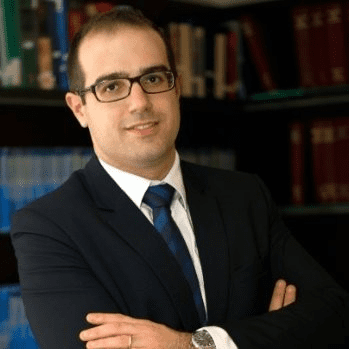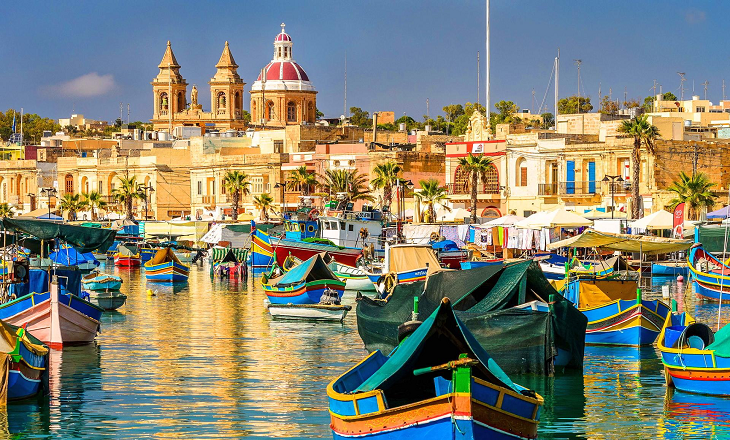News that leading cryptocurrency exchange Binance was moving to EU-member island Malta following back-and-forth regulatory moves against the company and crypto exchanges generally in Japan and China, begs for some important questions need to be answered.
Will Malta become a crypto-exchange friendly locale, and attract more providers?
Why exactly is Malta attractive to exchanges like Binance?
The following article was written by Dr. Omar Zerafa and Dr. Emerson Bonello of Valletta, Malta based law firm Zerafa Advocates.

Omar Zerafa
Malta’s Prime Minister Dr. Joseph Muscat claimed that Malta is aiming to be “the global trailblazer in the regulation of blockchain-based businesses and the jurisdiction of quality and choice for world class fintech companies.”
Such statement might sound as a perfect symphony to crypto-enthusiasts in times where we are witnessing a cautious approach by other countries in relation to cryptocurrencies and blockchain technologies. Malta’s commitment to be one of the pioneers in regulating digital innovation, cryptocurrencies and blockchain has been endorsed by cryptocurrency exchanges announcing to open an office in Malta, which described Malta as “very progressive when it comes to crypto and fintech”.
But what kind of progress has been made by Malta?
Collective Investment Schemes investing in Virtual Currencies
The Malta Financial Services Authority (“MFSA”) has extended the scope of the Maltese professional investor fund (“PIF”) regime to allow such schemes to invest in Virtual Currencies. PIFs are a class of funds which may only be promoted to qualifying investors with a minimum initial investment of €100,000 and enjoy very few restrictions on investments as opposed to retail funds. They do not fall under the full AIFMD regime and are by far the most flexible type of collective investment scheme used for a wide range of investments and strategies, including Virtual Currencies.
Moreover, several legislative acts are being proposed in Malta which are aimed at regulating cryptocurrencies, their underlying technology and the national authority which would be competent.

Emerson Bonello
Virtual Currencies Act
The MFSA is proposing a new ‘Virtual Currencies Act’ where it would regulate Virtual Currencies which are not already regulated by existing legislation. The Virtual Currencies Act will provide certainty by establishing the ‘Financial Instruments Test’ where it will indicate whether a Virtual Currency falls under the definition of a financial instrument or not. If the test indicates that a Virtual Currency does not qualify as a financial instrument, then the proposed Virtual Currencies Act would apply.
It is also being proposed that issuers of Initial Coin Offerings (“ICOs”) must carefully consider whether their activities constitute regulated activities or not, based on the ‘Financial Instrument Test’. If the VC is not qualified as a financial instrument, then the existing legislation shall not apply and the Virtual Currencies Act would apply. The Virtual Currencies Act would provide for a framework for the regulation of the issuer and the exchange platforms. Since a lot of information has already been communicated by the regulator to the industry, we are now eagerly waiting for the Virtual Currencies Bill to pass through parliament and enter into force.
The Technology Arrangements Bill
Malta is also aiming to be one of the first EU countries to regulate blockchain. In fact, it is proposing a new Technology Arrangements Bill, where it will regulate Distributed Ledger Technology (“DLT”) Platforms and Smart Contracts. The Government is also not excluding the possibility that the scope of such bill will be extended in the future to include other arrangements, such as artificial intelligence. This bill is proposing that any person may request the competent authority to certify a technology arrangement, on a voluntary basis, if such arrangement has an administrator in place who is registered with the authority. The bill is proposing to include a provision whereby a contract shall not be considered invalid simply because it is a ‘Smart Contract’. Service Providers to such technology arrangements may also seek registration from the authority on a voluntary basis if they:
- Provide services in relation to any DLT Platform which is certified by the competent authority;
- Provide services in or from Malta;
- Provide services through Maltese legal persons; and
- Provide services in such other cases as the Minister may prescribe.
Since there may be technology arrangements which are not owned by a corporate structure and would not have a proper legal personality, the bill is proposing that such technology arrangements may register with the ‘Registrar for Legal Persons in Malta’ and acquire legal personality upon satisfaction of number of requirements.
The Malta Digital Innovation Authority
In its efforts to regulate blockchain, Malta is proposing the establishment of a new central authority which will be focusing on innovative technology arrangements, the certification of such technology arrangements and the registration of their service providers. This central authority will be known as the Malta Digital Innovation Authority (“MDIA” or the “Authority”) and shall be established once the proposed Malta Digital Innovation Authority Bill enters into force. This bill also provides for the internal governance arrangements of the Authority, including the composition of the Board of Governance, the employees and the officers of such Authority. It will also provide for the conduct of affairs and other relevant financial provisions. The proposed bill will also set out the powers granted to the MDIA and dispute resolution mechanisms.
Malta’s vision has been set to be one of the first countries to regulate and attract investment relating to cryptocurrency and blockchain and it has made concrete progress in this regard. Recent developments show how Malta has adopted an open approach in listening to the industry to identify the major technical issues surrounding the field and is now proposing a concrete legislative framework aimed at regulating these areas.
We, at Zerafa Advocates, are already helping our clients to adapt to the evolving legal framework to ensure a timely delivery once the new regulations are in place.
